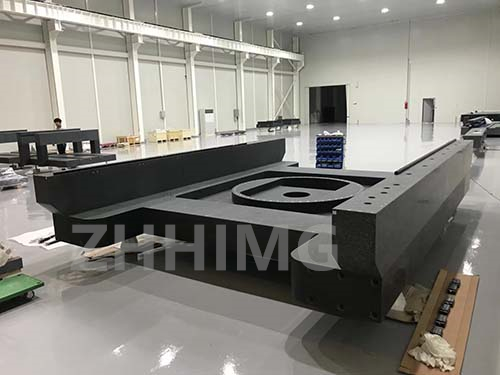Granite is a commonly used material in precision measurement equipment due to its unique properties, including density. The density of granite plays a vital role in the accuracy and precision of measuring equipment.
Granite is known for its high density, which makes it an ideal material for precision measuring equipment such as slabs, angle plates, and granite squares. Granite's high density allows it to resist warping and deformation, providing a stable and reliable surface for precise measurements. When accuracy is critical, granite's density ensures that measurement equipment remains dimensionally stable even under changing environmental conditions.
Granite's density also contributes to its ability to dampen vibrations and absorb shock, which is critical to maintaining the accuracy of measuring instruments. This feature helps minimize the impact of external factors such as machine vibration or sudden movement, ensuring accurate and consistent measurement results.
In addition, the uniformity of granite surface density is critical for precision measuring equipment. Variations in density can cause inaccurate measurements, but granite's consistent density provides reliable and repeatable results.
In addition, the high density of granite makes it resistant to wear and corrosion, ensuring the longevity and durability of precision measurement equipment. This means the device remains accurate over time, reducing the need for frequent recalibration or replacement.
In summary, the density of granite significantly affects the performance of precision measurement equipment. Its high density provides stability, vibration resistance and uniformity, all of which are critical for achieving accurate measurements. Therefore, granite remains the material of choice for precision measuring equipment, playing a vital role in various industries where accuracy is critical.
Post time: May-23-2024

